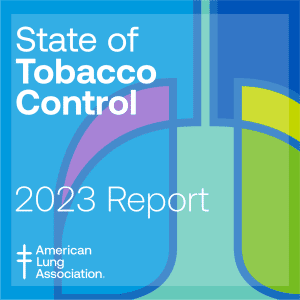News
South Carolina Lags Behind Nation in Policy Efforts to Prevent and Reduce Tobacco Use
South Carolina is listed as one of the states with the worst policies to prevent and reduce tobacco use, according to the American Lung Association’s 21st annual “State of Tobacco Control” report, released today. The state earned mostly failing on this year’s report.
The “State of Tobacco Control” report evaluates state and federal policies on actions taken to eliminate tobacco use and recommends proven-effective tobacco control laws and policies to save lives. This is critical, as tobacco use remains the leading cause of preventable death and disease in America and takes the lives of 7,230 South Carolina residents each year.
“South Carolina lags behind when it comes to tobacco control policies, and as a result, we have higher than average adult smoking rates at 15.5% and 27.5% of high school students use a tobacco product,” said Danna Thompson, Director of Advocacy at the American Lung Association in South Carolina. “This gives us an important opportunity to improve the health of our state through proven policies, such as funding our state tobacco prevention and control program and maintaining local authority on tobacco control policies.”
South Carolina’s Grades
The “State of Tobacco Control” report grades states and the District of Columbia in five areas that have been proven to prevent and reduce tobacco use and save lives. In the 2023 report, South Carolina received the following grades:
- Funding for State Tobacco Prevention Programs – Grade F
- Strength of Smokefree Workplace Laws – Grade F
- Level of State Tobacco Taxes – Grade F
- Coverage and Access to Services to Quit Tobacco – Grade B
- Ending the Sale of All Flavored Tobacco Products – Grade F
This year’s report noted the need for South Carolina policymakers to focus on adequately funding tobacco prevention and quit smoking programs. An investment in prevention is especially important given the ongoing youth vaping epidemic. Despite receiving $226,900,000 from tobacco settlement payments and tobacco taxes, South Carolina only funds tobacco control efforts at 13.2% of the level recommended by the Centers for Disease Control and Prevention (CDC). The Lung Association believes the funds should be used to support the health of our communities, and to prevent tobacco use and help people quit, and not switch to e-cigarettes. These programs are also critical for helping to end tobacco-related health disparities.
“We are very concerned about proposed legislation to prevent local communities protecting kids from tobacco,” said Thompson. “We oppose H.3681, H. 3483 and S. 0414 given the legislation would prevent local governments from passing stronger tobacco control policies. The preemption of local authority is a favorite tactic of the tobacco industry to deny local governments the ability to pass meaningful public policies to prevent and reduce tobacco use. South Carolina is a diverse state, where the needs of different cities and counties vary widely. Because of this, we must give local governments the ability to develop the best laws to protect their citizens. We believe that local governments should be allowed to respond to public health issues, like youth tobacco use and the youth e-cigarette epidemic, in ways that work for their communities.”
Federal Grades Overview
The report also grades the federal government on their efforts to eliminate tobacco use. This year, there were new steps taken by the government to prevent and reduce tobacco use, including proposed rules to end the sale of menthol cigarettes and flavored cigars, Congress passing a law requiring the FDA to regulate tobacco products made with synthetic nicotine, and increased federal enforcement of the Tobacco Control Act. As a result of these steps forward, the federal government’s grade for “Federal Regulation of Tobacco Products” improved from a “D” grade last year, to a “C” grade in the 2023 report.
The 2023 “State of Tobacco Control” report grades the federal government in five areas:
- Federal Government Regulation of Tobacco Products – Grade C
- Federal Coverage of Quit Smoking Treatments – Grade D
- Level of Federal Tobacco Taxes – Grade F
- Federal Mass Media Campaigns to Prevent and Reduce Tobacco Use – Grade A
- Federal Minimum Age of Sale for Tobacco Products to 21 – Incomplete
FDA is overdue in publishing the final Tobacco 21 regulations as required by statute, which is why it earns an “incomplete.”
To learn more about this year’s “State of Tobacco Control” grades and take action, visit Lung.org/sotc.

























